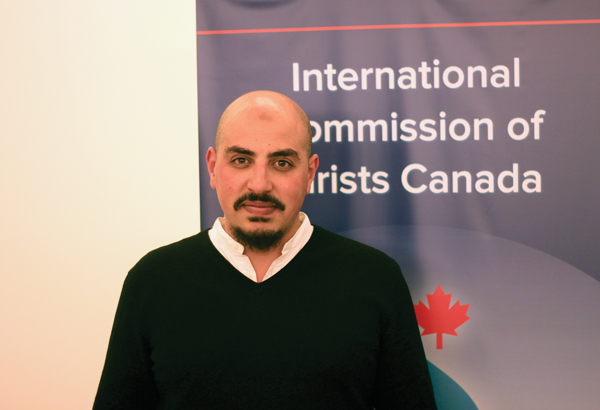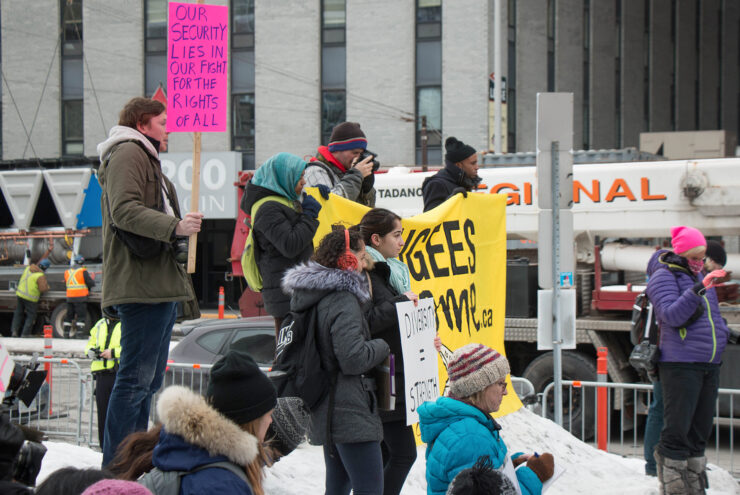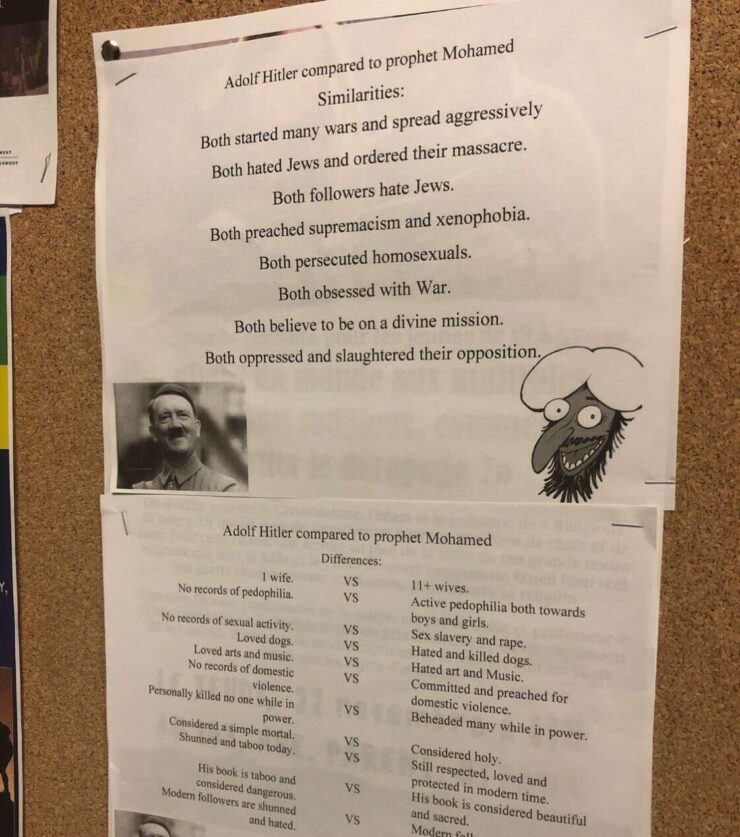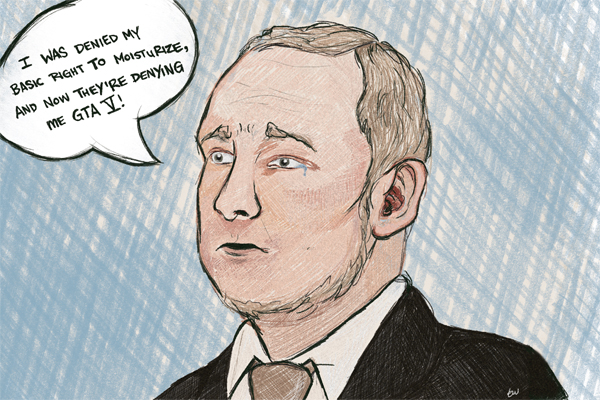Speaker says we need better information, more positive social presence
Marwan Muhammad, advisor to the Organization for Security and Co-operation in Europe. Photo: Eric Davidson.
Marwan Muhammad, advisor to the Organization for Security and Co-operation in Europe (OSCE), was welcomed by the University of Ottawa’s Human Rights Research and Education Centre on Oct. 15 for an event held to address Islamophobia in Canadian communities.
“Today, religious polarization and intolerance threaten our peace and prosperity,” said Mobeen Khaja, president of the Association of Progressive Muslims of Canada.
Muhammad came from France to discuss how to bring an end to Islamophobia in Canada and across the world.
After volunteering to translate a speech for one NGO, the Collective Against Islamophobia in France (CCIF), Muhammad found that it was actually pretty convincing.
“When I was translating the speech, the evidence that was there was compelling,” he said. “I felt the call to get involved.”
He then began informing himself on all aspects of Islamophobia, eventually becoming a spokesperson for the CCIF. As he became more involved addressing Islamophobia across Europe, he was hired by the OSCE.
Today, Muhammad works on an international level, empowering NGOs and participating states of the OSCE—57 from Europe, Central Asia and North America. He said he’s been invited to speak and run workshops in Canada by a number of NGOs.
Muhammad’s goal is to inform the public of the harm caused by Islamophobia. He believes that not only is it harming Muslims and Muslim communities all over the world, it is also harming our societies as a whole.
“There is a responsibility for all of us, not only Muslims to address this phenomenon,” he said.
Islamophobia can be manifested in a number of ways, Muhammad said, from hate speech and hate crimes to the way Muslims are portrayed in the media and in political discourses.
“We should make sure that every participating state has the means to respond to these incidents by supporting victims, providing psychological and legal support,” he said. “Whether through equality bodies or police forces, but also through a vibrant network of people who are human rights oriented.”
One way to do this, he said, is by going back to his academic roots in statistics. Before we can solve problems, he said, we need to properly identify them.
“There are huge disparities in the data collection mechanism,” he said. To properly combat Islamophobia, he said, it’s important for human rights activists and NGO’s to collect solid data.
“People who are not in NGOs—students, professors, everyday people—can get involved by making sure that they are aware of this reality by showing solidarity to communities.”
Muhammad said that by being present on social media and addressing incidents of racism, we can all contribute to fostering a positive climate of tolerance and diversity.
“The main message I came to deliver in Canada is stay together, and define a common narrative that brings people together in all their diversity,” he said. “You have something precious in terms of mutual understanding and diversity.”





